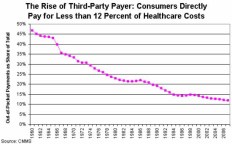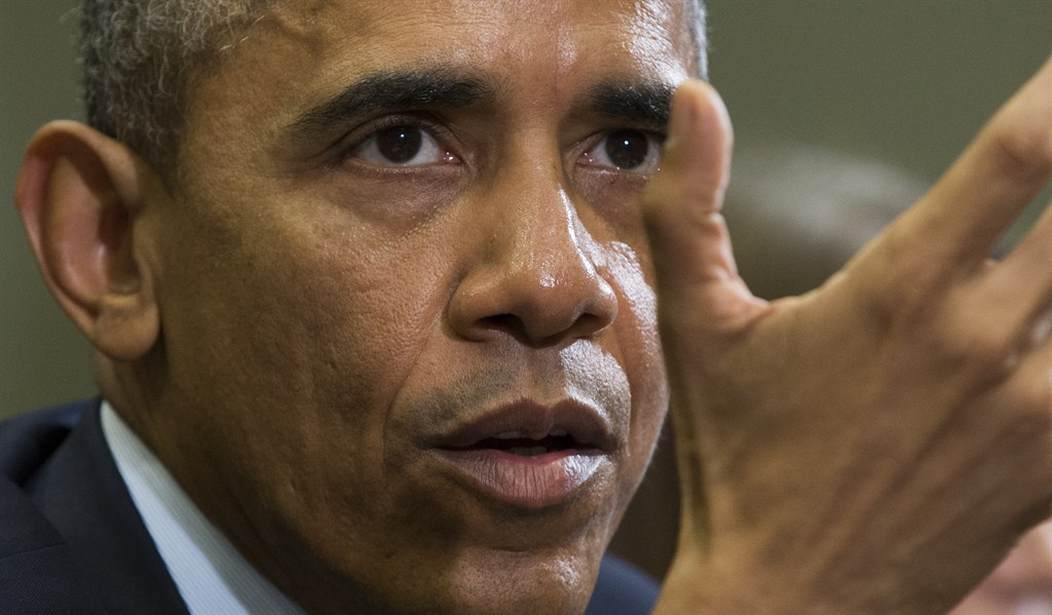My Cato Institute colleague Michael Tanner has produced some first-rate substantive research on issues.
He produced a study showing that personal retirement accounts would have been a better deal than Social Security even for people who retired at the depth of the financial crisis and stock-market collapse.
He authored another study showing that overly generous welfare systems in most states make productive work relatively unattractive compared to government dependency.
And I’ve also cited his analysis and commentary on issues such as Obamacare andobesity.
Today, I want to cite him for the simple reason that I admire his cleverness.
 For those of us who suffered through President Obama’s State of the Union address, you may recall that the President proposed a thawing of America’s relationship with Cuba on the basis that if something “doesn’t work for 50 years, it’s time to try something new.”
For those of us who suffered through President Obama’s State of the Union address, you may recall that the President proposed a thawing of America’s relationship with Cuba on the basis that if something “doesn’t work for 50 years, it’s time to try something new.”
Since I’m not a foreign policy person, I didn’t pay close attention to that passage.
But perhaps I should have been more attentive. It turns out that Obama created a big opening.
Writing for National Review, Tanner decided to hoist Obama on his own petard.
During his State of the Union address last week, President Obama defended his Cuba policy by pointing out, “When what you’re doing doesn’t work for 50 years, it’s time to try something new.” As it happens, I agree with the president on Cuba. But it seems to me that his advice should be applied to a number of other issues as well
 Mike starts with the ill-fated War on Poverty.
Mike starts with the ill-fated War on Poverty.
Lyndon Johnson declared war on poverty in January 1964, just three years after the start of the Cuban embargo. Since then we’ve spent more than $20 trillion fighting poverty. Last year alone, federal and state governments spent just under $1 trillion to fund 126 separate anti-poverty programs. Yet, using the conventional Census Bureau poverty measure, we’ve done nothing to reduce the poverty rate. …And, whatever success we’ve achieved in making material poverty less uncomfortable, we’ve done little to help the poor become independent and self-supporting.
Recommended
He then points out the utter failure of the War on Drugs.
The War on Drugs has been going on even longer than the War on Poverty, with a similar lack of success. …in the last ten years alone we have spent some $500 billion fighting this “war,” and arrested more than 16 million Americans for drug offenses. The vast majority of arrests have been for simple possession, not sale or other drug crimes. While filling our prisons with nonviolent offenders, destabilizing countries like Mexico and Colombia, wrecking our own inner cities, and making the cartels rich, the drug war has failed to reduce either violence or drug use.
 Mike also reminds us that we’ve had five decades-plus of government-run healthcare.
Mike also reminds us that we’ve had five decades-plus of government-run healthcare.
…we’ve suffered from government-run health care in this country for more than 50 years as well. Medicare and Medicaid started in 1965. Others would point out that we are still suffering the consequences of the IRS decision in 1953 to make employer-provided insurance tax-free, while individually purchased insurance has to be paid for with after-tax dollars. No matter how you want to measure the starting point, the government now pays for roughly 52 percent of U.S. health-care spending, and indirectly subsidizes another 37 percent. The result has been steadily rising health-care costs, a dysfunctional insurance market, and a growing shortage of physicians. …a study out of Oregon suggests that being on Medicaid provides no better health outcomes than being uninsured. Meanwhile, Medicare is running up more than $47.6 trillion in unfunded liabilities. And let us not forget the VA system and its problems.
And his article merely scratches the surface.
One could go on and on. Fannie and Freddie? Social Security and its almost $25 trillion in unfunded liabilities? Stimulus spending? Green energy? We won’t even mention the National Weather Service’s apparent inability to accurately predict snowstorms. If we are looking for lessons to learn from the last 50 years, here is one: Bigger government has not brought us more security, more freedom, or more prosperity. Yet, President Obama still sees the answer to every problem, no matter how small, as more government, no matter how big. …President Obama not only seems unable to learn from history, but apparently doesn’t even listen to his own speeches. If big government hasn’t worked for 50 years, 100 years, or for that matter pretty much the whole of human history, maybe it’s time to try something else.
The final sentence in that passage is not just a throw-away line.
I have my own two-question challenge for leftists, which is basically a request that they identify a nation – of any size and at any time – that has prospered with big government.
 Mike does something similar. He basically points out that big government has an unbroken track record of failure, and not just for the past 50 years.
Mike does something similar. He basically points out that big government has an unbroken track record of failure, and not just for the past 50 years.
I suppose the question to ask is whether any big-government program can be considered a success? In other words, what has any government done well, once it goes beyond the provision of core public goods such as enforcing contracts, protecting property rights, and upholding the rule of law?
To be fair, there are some nations, such as Switzerland, that have enjoyed very long periods of monetary stability and peace. And jurisdictions such as Hong Kong and Singapore have experienced decades of prosperity and tranquility.
In all of those jurisdictions, I think government is too big, but they are considered small-government by modern-world standards.
In any event, the point I’m making is that some governments seem semi-competent, but there also seems to be a relationship between the size and scope of government and the failure of government.
It will be interesting to read the comments.

























Join the conversation as a VIP Member